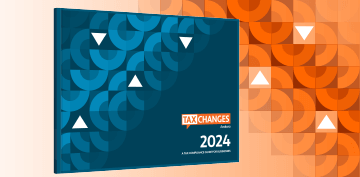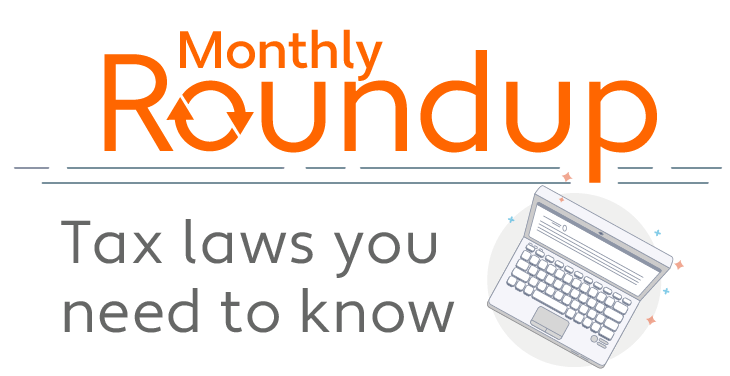Use tax reporting laws for non-collecting sellers are becoming more common. But are they effective?
Colorado became the first state to enforce use tax notice and reporting requirements for non-collecting retailers on July 1, 2017. It took seven years for the state to win the right to do it, a legal battle other states watched with interest. Once Colorado’s non-collecting seller notice and reporting requirement was allowed to stand, other states were quick to implement similar laws.
In fact, while the Colorado law was making its way through the courts, Alabama, Louisiana, Vermont, and Puerto Rico enacted laws with effective dates contingent on a Colorado win: All took effect July 1. Since then, several other states have followed suit, and more state legislatures are considering use tax notice and reporting requirements for non-collecting sellers this session.
Learn more about use tax notice and reporting requirements for non-collecting sellers.
MTC drafts model use tax notice and reporting law
An effort to create a model law based on Colorado’s notice and reporting statute is also underway. It’s led by the Uniformity Committee of the Multistate Tax Commission (MTC), an intergovernmental state tax agency working to “facilitate the equitable and efficient administration of state tax laws that apply to multistate and multinational enterprises.”
Under the MTC proposal, non-collecting retailers that do business in a state would be required to:
1. Notify purchasers at the time of transaction that tax is not being collected and may be due directly to the state department of revenue.
2. Provide purchasers an annual report listing their purchases.
3. Provide the state department of revenue an annual report listing the dollar amount of each purchaser’s purchases.
The draft law allows a de minimis exception for non-collecting sellers that make less than either $5 million in national gross sales or leases, or $100,000 in total transactions in the state during the prior calendar year. It also specifies that marketplace sales be reported, “even if the sale or lease is finalized by the marketplace facilitator and not by the seller.” Annual reports to customers are also subject to thresholds — they need only be sent by non-collecting sellers and marketplace facilitators “who entered into, in the aggregate during the previous calendar year, more than $200 in transactions that are subject to the notice requirement.”
The MTC Uniformity Committee approved the draft model on April 25. A copy is available here.
Colorado law needs work
Although Colorado’s use tax notice and reporting requirements for non-collecting sellers took effect July 1, 2017, annual customer information reports weren’t due to the department until March 1, 2018. Consequently, the state has only recently learned how effective the law is.
It was designed to increase use tax collections, as well as grow voluntary registrations for out-of-state sellers. Phil Horwitz of the Colorado Department of Revenue told the MTC Uniformity Committee that the state didn’t receive as many reports as expected. “Obviously there’s still some work we have to do on compliance. Not every vendor understands that they have these obligations, and we have to do a little more outreach and education” (Hat tip to Bloomberg Tax).
According to the reports that were remitted, $250 million in sales were not taxed during the reporting period, amounting to about $7.5 million in uncollected state sales tax (assuming all were taxable transactions). While some consumers spent very little, other single purchasers spent as much as $300,000 and even $900,000.
This information should help the Colorado Department of Revenue increase use tax collections. It knows which taxpayers made large untaxed purchases and can investigate to see if those purchases were taxable. If they were, the department can go after those consumers for use tax. As Horwitz noted, “[T]here are obviously some very large taxpayers that will merit some inquiry.”
Connecticut seeing some success after hounding taxpayers
Unlike some states, Connecticut hasn’t enacted a non-collecting seller use tax requirement. Yet, that didn’t stop the Department of Revenue Services (DRS) from telling non-collecting internet retailers that they had to either register with the state and start collecting sales tax, or turn over three years’ worth of electronic sales records for customers with Connecticut addresses. Armed with the information it received, the department sent use tax notices to the consumers.
DRS Commissioner Kevin Sullivan says he doesn’t want to hound consumers for use tax. He would rather retailers collect and remit tax at the point of sale: “Our goal is to use whatever leverage we have to get the companies to do the right thing [collect the tax].” It just may be working. Earlier this month, the commissioner revealed that Newegg would collect and remit in Connecticut as of July 1, 2018.
Companies have a choice
Not all retailers are so compliant. Overstock responded to Colorado’s law as follows: “Overstock will not be voluntarily collecting and remitting in a state where we don’t have physical presence.” Colony Brands had a similar response. Both companies opted to comply with the use tax notice and reporting requirements instead.
Whether companies choose to collect and remit or notify and report, there are penalties for non-compliance in all states. These vary by state can be quite high, even for the notice and reporting requirements. In Colorado, for example, non-collecting retailers must pay a penalty of $5 for each sale to a Colorado purchaser that does not provide the transactional notice. Washington state imposes even steeper penalties for failure to comply with its reporting law.
And what about South Dakota v. Wayfair, Inc.?
While some states are pushing ahead with non-collecting seller use tax reporting and other laws designed to increase remote sales tax collections (e.g., marketplace sales tax laws), all states are eagerly awaiting the ruling of the Supreme Court of the United States on South Dakota v. Wayfair. If South Dakota wins, states could be granted the authority to tax sales by out-of-state sellers. If Wayfair wins, the court will not expand state tax authority. In that event, more states are likely to impose use tax reporting requirements on non-collecting sellers. Learn more.
Want to know more? Get the guide: Non-Collecting Seller Use Tax Reporting Is Coming. What Does It Mean for You?

Avalara Tax Changes 2024: Get your copy now
Stay ahead of 2024’s biggest tax changes with this comprehensive, compelling report covering seven industries.
Stay up to date
Sign up for our free newsletter and stay up to date with the latest tax news.












